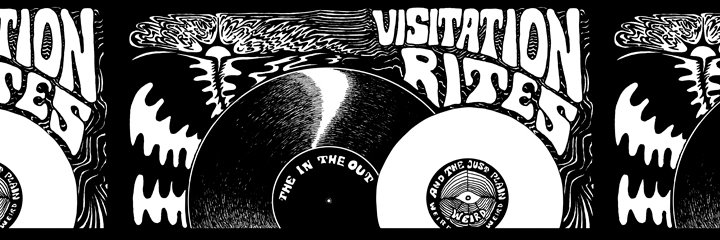
“Standing on the shoulders of giants makes it easier to kick them in the teeth.” This expression, worthy of Monty Python, neatly sums up the code of Mostly Other People Do The Killing, a New York combo led by contrabassist Moppa Elliott. Indeed, Mostly Other People Do The Killing show that they have grasped (and so, can gut) jazz history to the bone: while they reveal a sturdy formal reverence with every studied lick, MOPDTK never demonstrate their knowledge better than when they mock it. And This Is Our Moosic, their third studio album, does just that.
Wearied by the platitudes of contemporary mainstream jazz—a literally evolved but artistically failed genre (see: the “neo-bop” of Wynton Marsalis and its deaf reverence to forties be-bop)—Moppa Elliott decided to take a gamble. His mission: to seriously engage the musical heritage of jazz without compromising himself. “Rather than just make music that fits within some artificial “tradition” or music that rejects jazz completely, I would rather make music that uses jazz' identity crisis against it, piling as many nonsensical musical associations together as possible to create music that is aware of its own inconsistencies, ironies, and contradictions, and likes it that way.”
To this end, the contrabassist surrounded himself with like-minded chameleons, each as knowledgeable and bold as Elliott himself: on brass, the lively duo of Peter Evans (trumpet) and Jon Irabagon (saxophone), their phrasing at once expressive and virtuosic; on drums, the pummeling Kevin Shea, his beat as punk as it is jazz. All four pay impertinent homage to the major currents that have flowed through the history of jazz—from blues (“Effort, Patience, Diligence”) to post-bop (“Fagundus”), touching on Dixieland (“Two Boots Jacks”), swing (“Biggertown”), and even boogaloo (“Drainlick”). The musicians sketch these forms rather than insist upon them, emancipating themselves before deconstruction even becomes necessary. Structures, chord progressions, and traditional scales are nothing but springboards to leap from: the brass jump joyously from pentatonic motifs into free solos; the drums patter from calm chabadas into tormented escapades, a percussive journey reminiscent of Art Taylor’s hard-bop solos, and John Coltrane’s hallucinating saxophone (“Countdown,” “Giant Steps,” 1959).
With their penchant for non-linearity, stratification, and fragmentation, MOPDTK have naturally found a tutelary figure in Ornette Coleman. The title of their third album (referring to Coleman’s This Is Our Music, 1960) and its sleeve (a perfect replica of the original) wink slightly at us, orienting our listening experience. Beyond these ornaments, however, the Mostly ensemble pays truest homage when they play. Questions of instrumentation aside (the noted pairing of Don Cherry and Ornette Coleman finding a worthy reflection in that of Peter Evans and Jon Irabagon), MOPDTK borrow the luminous composer’s radical conception of structure and liberty, their sound oscillating ceaselessly between cohesion and chaos. They also share his taste for a non-hierarchical approach to intervention: their live concert resembles an endless tug-and-pull of musical ideas, never revealing exactly who is piloting the flight. This year, Mostly Other People Do The Killing were nominated by the Jazz Journalists Association for “Small Ensemble of the Year". Also nominated, and eventual winner, was Ornette Coleman himself. Maybe next year.
Words: Sophie Pécaud
Translation: Khira Jordan
Originally published in French on Chronicart, Fall 2008

Like what we're doing here? Just a little pocket change gives Visitation Rites food to live on.




